
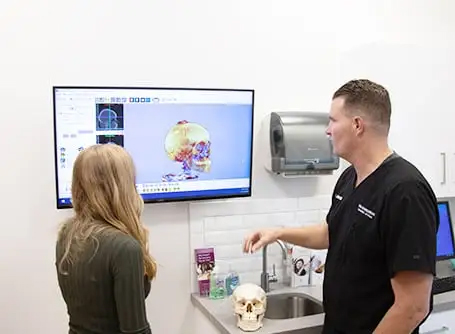
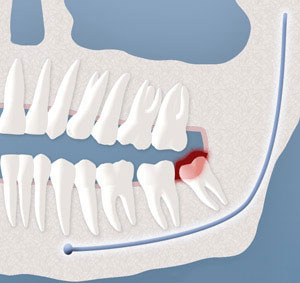
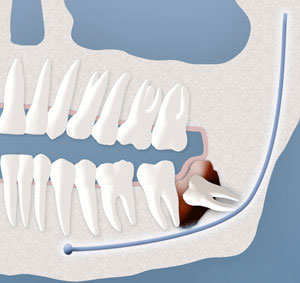
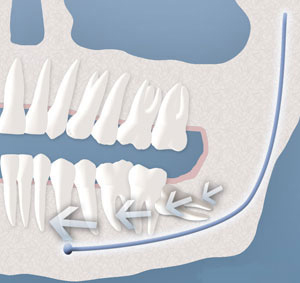
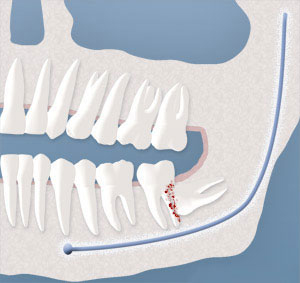
You will be provided with appropriate anesthesia options at your consultation.
On the day of your procedure, we ask that a parent or responsible adult accompanies you to the office and plans to stay with you the rest of the day. The average procedure will take about 30 to 60 minutes. You and your escort should plan on being in our office for about 90 minutes in total. Recent advances in medicine and technology allow patients to undergo wisdom tooth removal in a manner which promotes rapid healing and minimal post-operative discomfort. State-of-the-art sterilization and infection control techniques are used at all times.
On the morning or afternoon of your surgery, it is essential that you have nothing to eat or drink (speak with our doctors about taking prescribed medications prior to surgery) for at least 8 hours. Having anything in your stomach can increase the risk for serious anesthetic complications, including nausea and vomiting. Your procedure will be rescheduled if you have not heeded these guidelines. When you are seated in the surgical room, we will make every effort to make you as comfortable as possible. If you are going to be sedated, we will administer the anesthesia through an IV. This is a quick and nearly painless procedure that ensures optimal delivery of your medication. Once you are sedated, local anesthesia is used to numb the extraction sites to ensure your comfort during and after the procedure. You will be sleepy for a significant portion of the day. Upon leaving our office, you will be instructed to take medications to help minimize post-operative pain and swelling.



If you are an existing patient, this contact form should not be utilized for communicating private health information.
Privacy Policy
"*" indicates required fields




